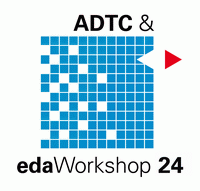LEMOS: Low-Power Design Methods for Mobile Systems

The greater than ever functionality of electronic devices is possible only by integrating an increasing number of highly complex tasks into the so called embedded Systems on Chip (SoC). This integration is made possible by downscaling the structure sizes of integrated circuits (ICs) and increasing their frequency. Both the power consumption and the heat dissipation are the limiting factors for further increase in efficiency of ICs. An inevitable means for handling the exponentially increasing design complexity is Electronic Design Automation (EDA). Main objective of LEMOS is the substantial increase of productivity and design effectiveness of power critical mobile systems. The resulting advantages are
- a reduced number of re-designs caused due to power dissipation, which will decrease the development time by more than one third,
- a shifted border of the so far - for power dissipation reasons - technically impossible and
- a drastically reduced power consumption.
Practical goals of the new design methods are for example to keep on-board devices which are supplying vehicle safety more than three months operable and to decrease the power consumption of mobile telephones by more than 50%. The scientific-technologic work will be comprehensive research of methods to reduce power dissipation and to allow the integration of these methods into an EDA methodology. Subsequently the research results will be evaluated in an industrial design environment.
Project coordination:Infineon Technologies AG Project management:ChipVision Design Systems AG Project partners:
Funding initial:BMBF F&E 01M3155 Runtime:Sat, 01 November 2003 - Tue, 31 October 2006 Website: | Project InformationFinal Report |
Used Abbreviations
| Abbreviation | Meaning |
|---|---|
| PR | Project Report |
| SPR | Short Project Report |
| PN | Project News |
| FPR | Final Project Report |










